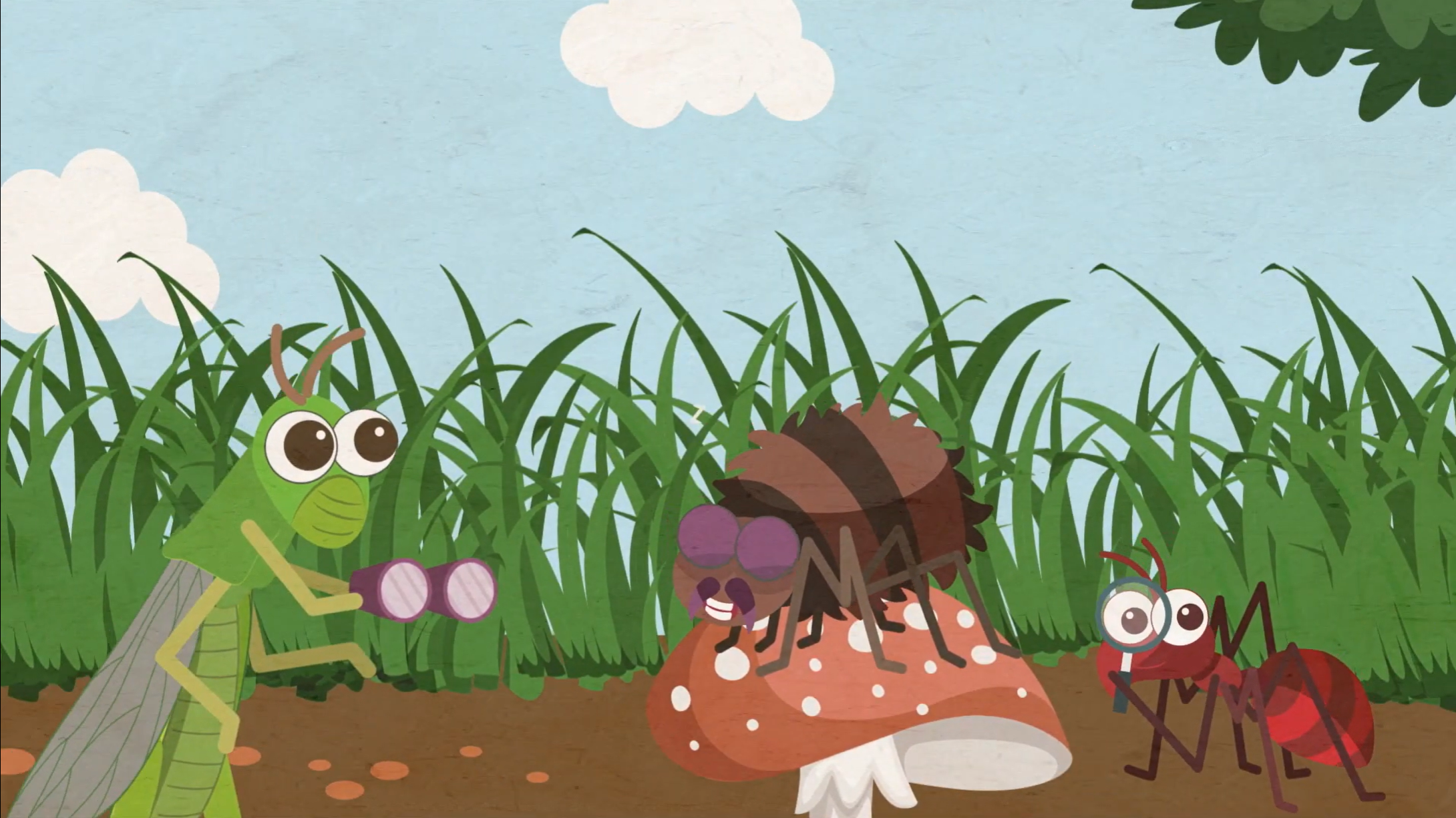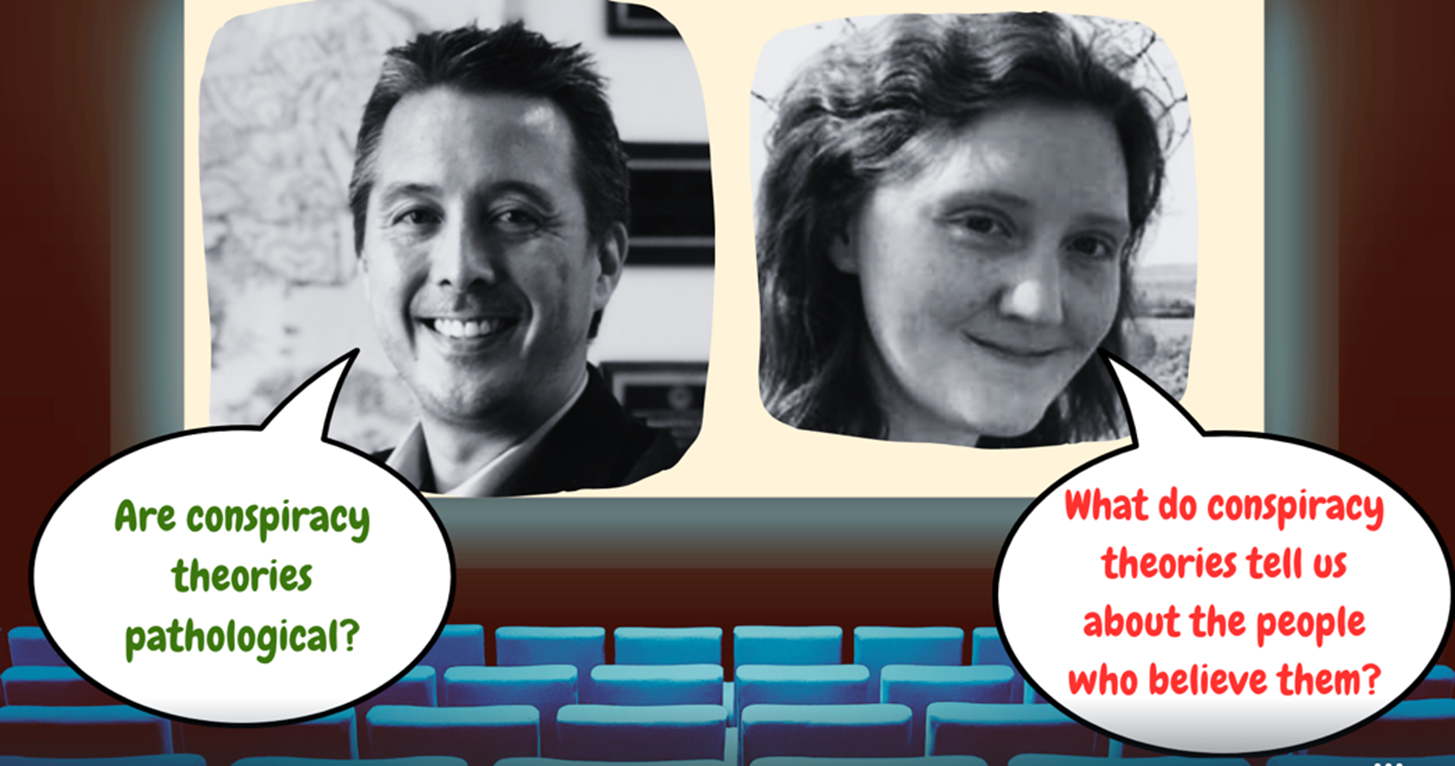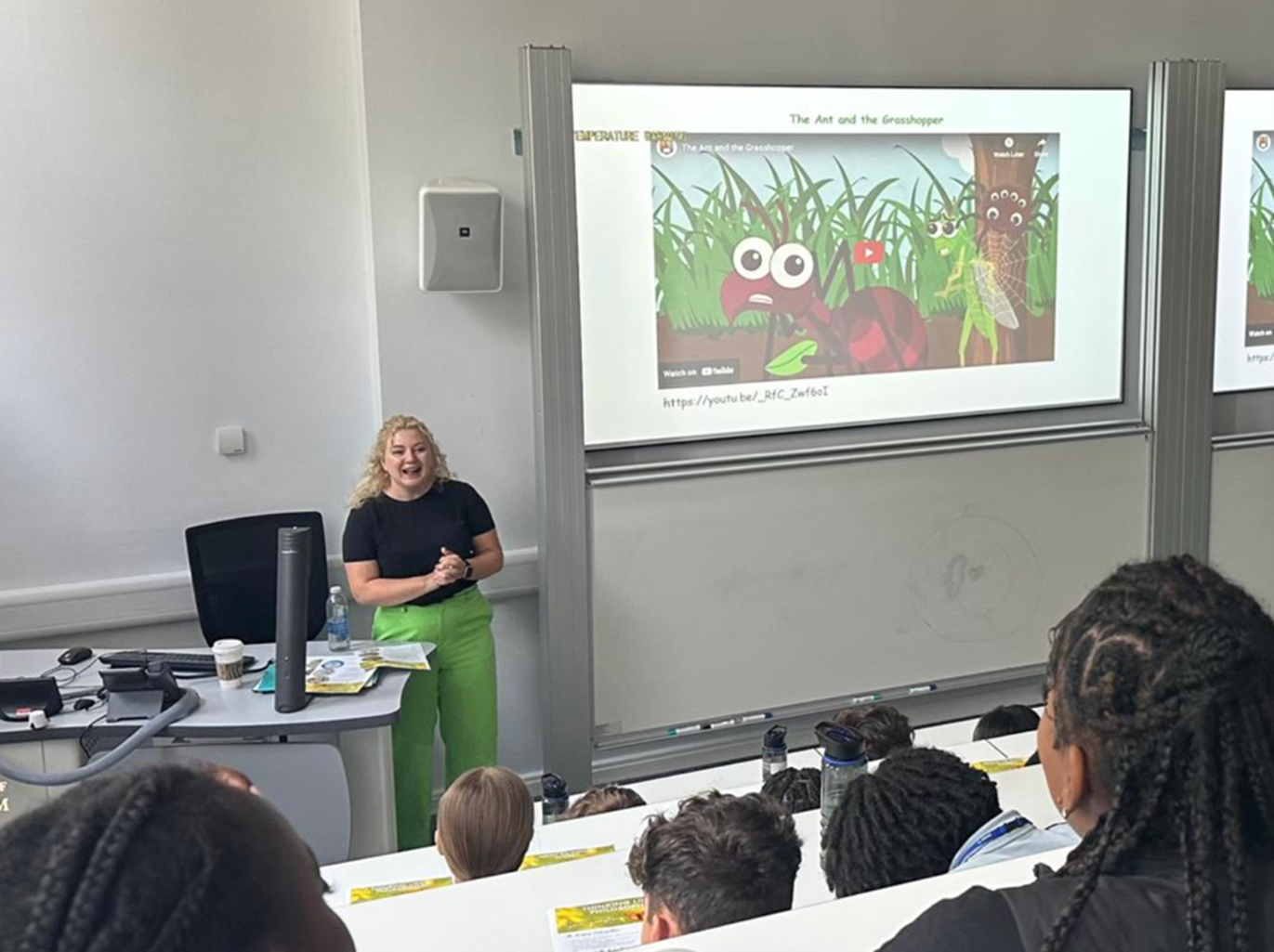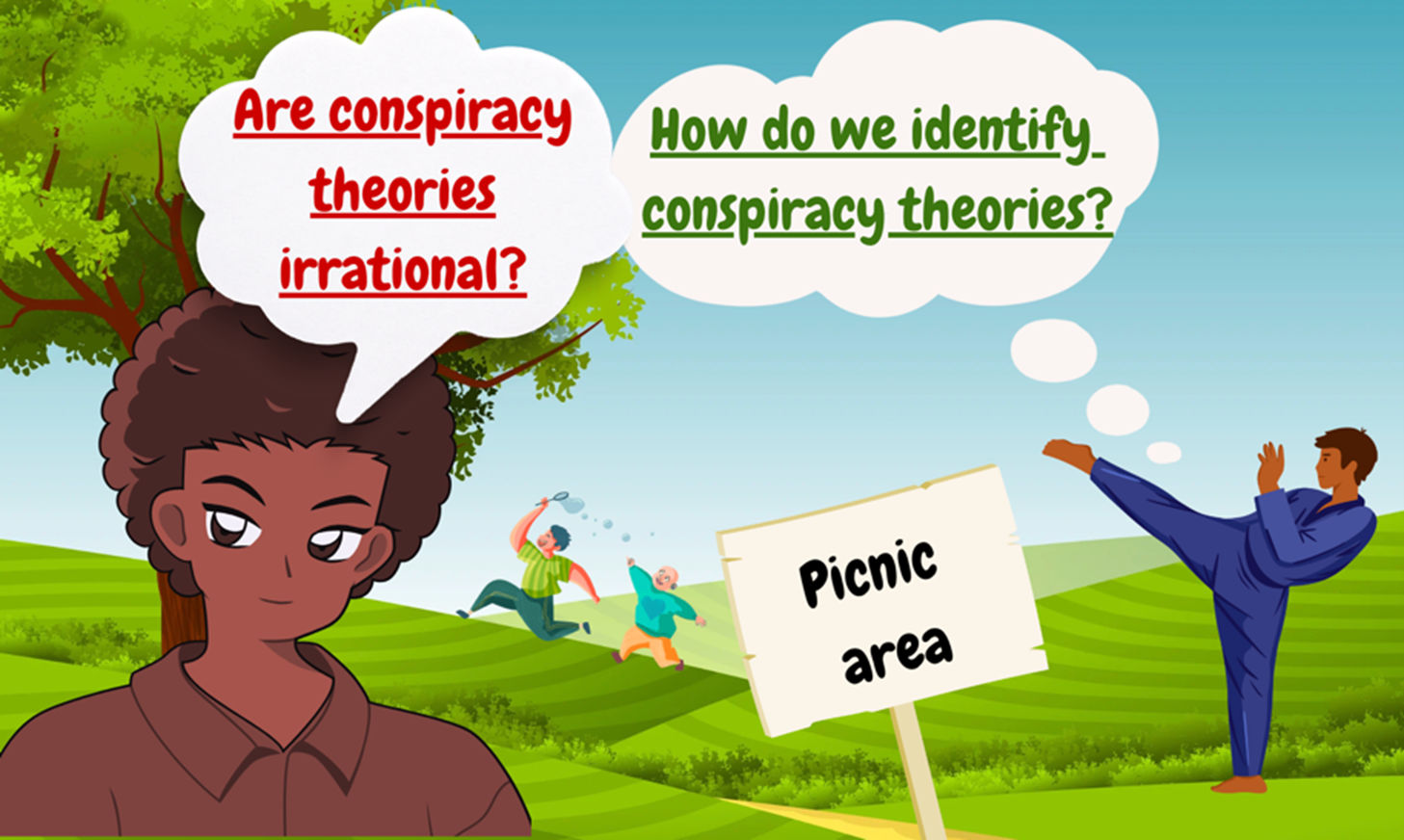The Philosophy Garden (guest post)
A group of philosophers at the University of Birmingham have a new project: The Philosophy Garden.
The Philosophy Garden is a philosophical outreach program aimed at the general public, especially the young. Its current focus is on conspiracy theories and misinformation.
In the following guest post, Lisa Bortolotti, Kathleen Murphy-Hollies, and Jessica Sutherland tell us about the various aspects of the project and how they’ve been sharing it with different kinds of audiences.

The Philosophy Garden
Or how to encourage philosophical discussion about important issues that affect us all via short animated videos created by experts
by Lisa Bortolotti, Kathleen Murphy-Hollies, and Jessica Sutherland
Philosophy for Everyone
Inspired by the excellent videos that were exhibited at the Philosophy Museum in Milan (see Anna Ichino’s Daily Nous post on the exhibition), some philosophers at the University of Birmingham decided to create some resources for the general public based on our current research projects, completely free to access. Recently, the department has become a thriving center for the study of delusions and conspiracy theories, with Ema Sullivan-Bissett securing externally funded grants to investigate these areas, also in collaboration with Anna Ichino, and Lisa Bortolotti working on the relationship between delusional beliefs and conspiracy beliefs in the last couple of years, culminating in the publication of Why Delusions Matter (Bloomsbury) earlier this month.
Lisa Bortolotti, Anna Ichino, and Kathleen Murphy-Hollies decided to collaborate and script three short stories that were then brought to life by Squideo, a company specialising in animated explainer videos. They were generously funded by an AHRC Impact Acceleration Award. The result is three 90-second videos highlighting aspects of how conspiracy theories form, spread, and take hold. You can see the videos on YouTube: The Hungry Caterpillar, The Ant and the Grasshopper, and The Fox and the Owl.

The videos exemplify some of the psychological needs and cognitive biases usually associated with conspiracy theories in the philosophical and psychological literature. The videos will be part of an exciting exhibition at the Philosophy Museum in Milan on conspiracism and misinformation in February 2024, but can also be used in sessions with schools and the general public to stimulate discussion and invite reflection on how to sustain a productive dialogue with people who have different views from ours and avoid pathologizing those we disagree with.
For these purposes, Lisa created a website (still under development) with Anna’s help and feedback from students and colleagues (special thanks to Lucienne Spencer and Anneli Jefferson), where the three videos are accompanied by additional information that young people can access on their own or with help from their teachers. There are mini interviews with experts on conspiracy theories (each under 2 minutes!), links to online games about fake news and misinformation, and links to accessible articles in online magazines exploring interesting features of conspiracy theories. There are also flyers with lists of biases and psychological needs leading to conspiracy theories—a flyer on social factors is coming up soon!
The website is called The Philosophy Garden, and you are welcome to explore it! There are plans for expansion with videos on other timely topics.

The resources at The Philosophy Garden have so far been presented to three different audiences, which shows that the material can be used for outreach, dissemination, and recruitment into philosophy programs.
A Conference for Philosophy teachers
Lisa Bortolotti participated in the inaugural conference of the Association for Philosophy Teachers in June 2023. She showed each of the three videos and then briefly explained the moral behind the story, inviting questions and comments from the audience. She also offered a quick tour of The Philosophy Garden website, playing a brief talk by psychiatrist Joseph Pierre who reflects on whether believing conspiracy theories is pathological.

The group of teachers who attended the session seemed to appreciate the resources: one teacher inquired whether the team developing the resources are willing to present on the subject in schools—which we are, in person in selected locations in the UK and online elsewhere.
The questions philosophy teachers asked included whether conspiracy theories must be false; what the relationship is between conspiracy theories and evidence; and why conspiracy theories are often associated with right wing ideology. Lisa highlighted that it is important to discuss these issues in class, though it may not be possible to offer one answer to questions concerning the truth, rationality, and political aspects of conspiracy theories, given that the category of conspiracy theory is very heterogeneous.
Campus School Visits
During school visit days at the University of Birmingham in July 2023, Jessica Sutherland taught two 45-minute sessions entitled ‘In the mind of a conspiracy theorist’, each with an audience of around fifty year 10 students (14-15 year olds). Getting students to talk about rich concepts like cognitive biases doesn’t initially sound like the easiest of tasks, but basing the session around the three videos really helped to situate the philosophy in something the students could relate to.

The students were genuinely surprised about how interactive the sessions were. One of the students’ teachers who sat in on one of the sessions commented that the videos and the interactive discussion were something different for their students who are typically used to lecture-style sessions during visits to universities. Not only were the sessions fun for the students (at least that’s what they reported afterwards), they were also enjoyable sessions for Jessica to deliver. According to Jessica, the sessions really helped change students’ perceptions of philosophy, and showed that it can be fun and relatable.
Summer Schools for School Leavers
As part of the National Access Summer School (NASS) in August 2023, Kathleen Murphy-Hollies delivered one 90-minute session on philosophy and conspiracy theories to Year 12 students (16-17 year olds). She really enjoyed discussing this topic with students, who were eager and very receptive to sharing their thoughts on the conspiracy theories they had encountered, whether it be through friends or social media. They discussed philosophical questions about conspiracy theories, such as what counts as a conspiracy theory, why people might adopt them, and whether it is rational or not to adopt them.

In particular, Kathleen focused on common cognitive biases which have been associated with belief in conspiracy theories. The resources and videos at the Philosophy Garden were really useful in demonstrating what these biases are, and the role they could play in coming to believe a conspiracy theory. By the end of the session, students had broken down some of the most bizarre and outlandish conspiracy theories which they had heard of into more familiar individual and environmental factors that can give rise to beliefs in conspiracy theories.
Future Developments
The Philosophy Garden team is keen to continue to approach teachers and students, and also eager to present the material to the general public. They have an exciting event planned for March 2024, funded by the Royal Institute of Philosophy, where the videos will be screened at the Midlands Arts Centre in Birmingham and experts will be invited for a panel discussion afterwards, leading to a more general discussion with the audience. If you want to know more about The Philosophy Garden, are interested in using the materials, or are willing to send the team some feedback, please get in touch by email. The Philosophy Garden is also on Instagram.


Yikes, this is blatant propaganda aimed at indoctrinating the youth. Of all disciplines, philosophy ought to be the one most capable of turning its critical gaze back on itself. The generally pervasive attempt to brand and neutralize any political discourse that strays from the neoliberal gospel of technocratic expertise as “conspiracy” will, ironically enough, be counted among this epoch’s most myopic delusions.
All this post talked about was conspiracy theories in general. Let’s say—Holocaust denial, moon landing denial, sort of thing?
I think the issue is that the website/program being advertised here appears to be automatically sorting certain claims/ideas/theories into the category of “conspiracy”, interestingly with heavy focus on COVID related dissent from the standard narratives and supposed scientific consensus around vaccines, masks, origins, etc. (Where we might be reasonably skeptical- see https://archive.ph/6vnq0 for example ) And I would add that on top of this, while it is emphasized that we should avoid “pathologizing” people for their beliefs, the lesson they do teach seems to be something just as bad- to diagnose dissent as driven by unconscious psychological needs for belonging and control.
Indeed.
But there is an obvious danger in speaking about conspiracy theories “in general” when it starts to work like a licence to sweep dissenting points of view under the heading of “conspiracy” in order to delegitimize them in advance of any rational hearing. For instance, 50 years ago it would have been “conspiracy” to claim that Cointelpro was arresting and murdering black activists. Today this is an acknowledged fact. Examples like this can be multiplied, e.g., that ExxonMobil already knew about climate change decades ago, etc.
It also reifies the very messy and often pragmatic norms of expertise as if they were absolute and inviolable standards — but who is the final authority on what counts as knowledge, evidence, and the bounds of permissible inference? Or did we Philosophers finally figure that one out, case closed?
Initiatives like these coming hot off the heels of the global response to covid, which has been undertheorized and fraught with social sanctions, appear extremely suspicious precisely owing to the enthusiasm of unchecked certainty.
Hello! Just on the assumptions implicit in the material. The videos are supposed to be conversation starters and we think of them as in the Aesop fable model, where there is a very simple story with a message at the end. The reader is not supposed to just buy the message but reflect on the story and what other interpretations the story allows. Take the original Ant and Grasshopper story where Ant works all summer saving supplies for winter and Grasshopper does nothing. When winter comes, Grasshopper is starving. Now we can side with Aesop’s original message that we reap what we sow or buy the Grasshopper carpe diem philosophy. After all, Grasshopper had a really fun summer. The purpose of the story is not provide easy solutions to complex problems, but give people something to think about that may also help them realise that both their intuitive and reflective stances come from a set of values and assumptions that other people may not share. Maybe Spider and Grasshopper are right and Beetle ate the seeds. Still, there are questions we can ask about why we are more attracted to some explanations rather than other explanations, and why we are often wedded to our initial hypotheses. And this is the point of the videos: get people to think and talk to each other. Not offer unidimensional prepackaged answers.